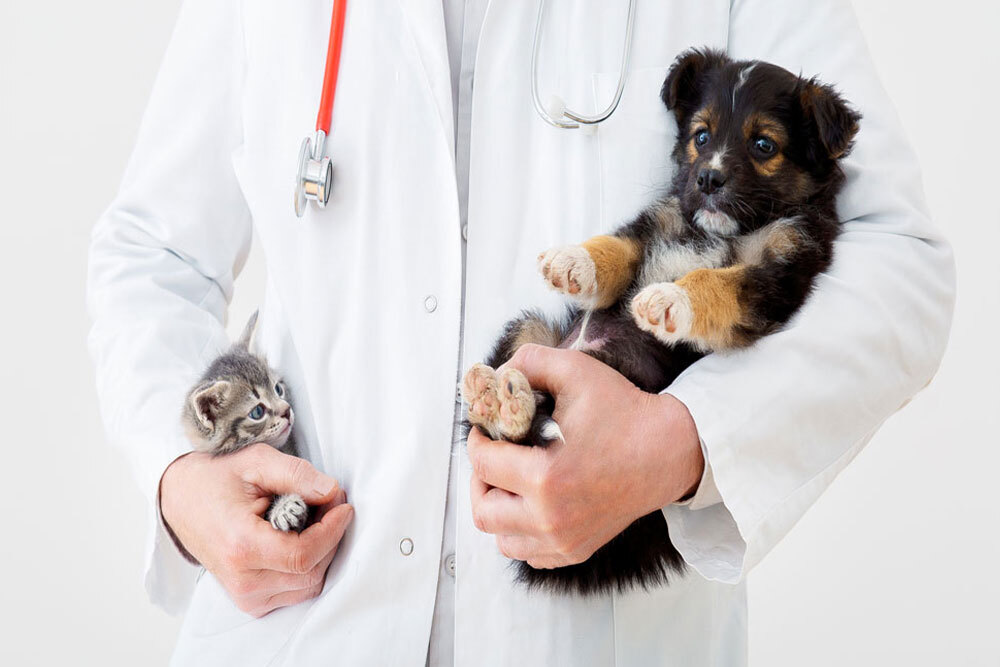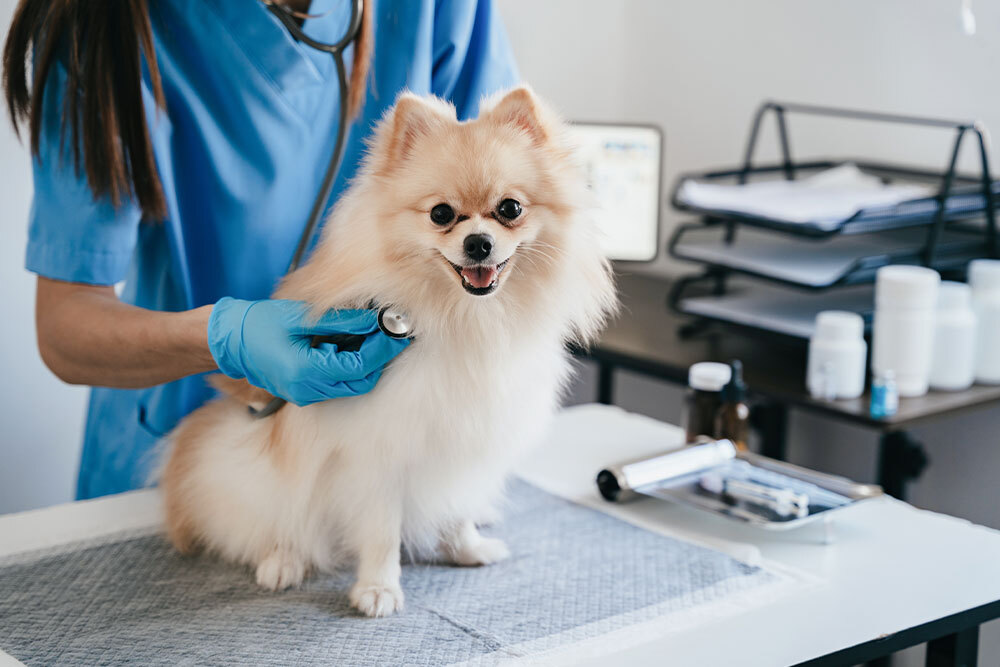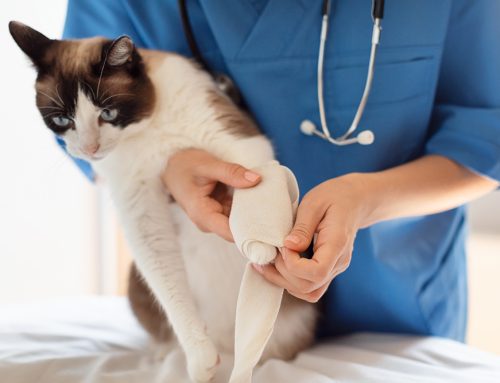Is It Serious? How to Spot Emergencies in Puppies and Kittens
Bringing home a new puppy or kitten is pure joy: the playful pounces, the tiny snores, the endless curiosity. But alongside the laughter and cuddles comes a new reality: young pets are far more fragile than they appear. What looks like a minor tumble, an upset stomach, or a sudden nap could be nothing- or it could signal something serious. The hardest part for new pet parents is knowing which is which.
At Providence Veterinary Clinic in Virginia Beach, we know how overwhelming those “is this normal?” moments can feel. By learning the early warning signs and knowing when to act, you can turn uncertainty into confidence and give your puppy or kitten the healthiest start possible.
Why quick action matters
Puppies and kittens have immature immune systems, limited reserves, and small bodies that dehydrate and destabilize quickly. A few hours of gastrointestinal upset can escalate to dangerous dehydration. A brief period of labored breathing can progress to oxygen deprivation. When you find yourself wondering whether to wait or to call, it is safer to reach out. Our team is here to talk through what you are seeing, and you can always start with a simple call or message to our team for guidance.
Breed predispositions: know your pet’s risks
Emergency patterns are not random. Certain problems appear more often in specific breeds and body types. Short-nosed dogs and cats tend to overheat and struggle with airflow; toy-breed puppies are prone to blood sugar crashes if they miss a meal; large-breed puppies can injure growth plates during rough play and face risks like bloat as they mature. Reading up on breed-specific health risks and trends among breeds with higher health risks helps you anticipate problems and spot warning signs earlier.
The many ways young pets get into trouble
Think of emergencies in four broad buckets: illness, injury, toxins, and sudden behavior change. The scenarios below are the ones we see most often.
Gastrointestinal illness
Vomiting and diarrhea are among the most common reasons puppies and kittens need urgent care. Parasites, dietary indiscretion, stress, and infections all play a role, and young bodies lose fluids fast. If you are seeing repeated episodes, dark or bloody stool, or a pet who will not drink, call promptly. Unvaccinated puppies are also vulnerable to parvovirus; if your pup shows vomiting, foul or bloody diarrhea, and profound lethargy, come in immediately.
Breathing problems
Any effortful breathing deserves immediate attention. Open-mouth breathing in a kitten, wheezing, head and neck extended to pull in air, or gums turning pale or bluish all suggest an emergency. Short-nosed breeds can decompensate quickly in heat or with excitement, and respiratory infections in young cats can progress faster than you expect. Head straight to the clinic or nearest ER so we can secure the airway and provide oxygen.
Trauma and accidents
Growth plates are delicate, balance is unrefined, and curiosity is boundless. Falls from furniture, being stepped on, colliding with doors, or skirmishes with resident pets can all cause serious injury. Limping, swelling, reluctance to move, or sudden hiding are all clues that something hurts. Internal injuries are not always obvious at home, so we often rely on imaging and monitoring to rule out bleeding or organ trauma.
Seizures and sudden collapse
Low blood sugar in small-breed puppies, toxins, infections, and congenital conditions can all trigger neurologic events. During a seizure, move hazards away and avoid putting hands or objects in the mouth. Once the episode ends, call so we can assess, stabilize, and look for causes.
Toxins, plants, and “garbage gut”
Young pets taste everything. Chocolate, xylitol, grapes, rodenticide, and human pain relievers are common hazards, as are houseplants such as lilies and sago palm. The ASPCA keeps an authoritative list of toxic and non-toxic plants that can help you audit your home. If exposure is possible, call us and also consider contacting ASPCA Poison Control for immediate toxicology guidance while you are on your way. Raiding the trash can leads to “garbage gut” with vomiting, diarrhea, and sometimes pancreatitis; even if a pet seems fine initially, symptoms may appear hours later.
Urinary problems
Male kittens can develop urinary inflammation and, in some cases, obstruction. Straining in the box, frequent small puddles, loud vocalizing, or blood in urine are red flags. Puppies that squat repeatedly with little output also need prompt assessment. Blockages can become life-threatening if urine cannot pass.
Lethargy and appetite changes
A playful puppy that suddenly refuses food, a kitten that hides and sleeps through playtime, or a pet whose energy “just isn’t right” may be showing the earliest signs of illness. A simple home exam checklist helps you organize what you are seeing: gum color, hydration, temperature, appetite, and comfort level. If any of those are off, a conversation with our medical team is the safest next step.
Preparation lowers risk
You cannot prevent every emergency, but small habits pay off.
- Pet-proof your space. Secure medications and cleaners, stow small objects, manage cords, and remove hazards using AAHA’s essential pet-proofing tips.
- Vaccinate and use preventives. Parasites and infectious disease are predictable threats in young animals.
- Build first-aid confidence. A stocked kit and basic training keep you calm and effective. The Red Cross offers cat and dog first-aid classes that cover CPR, bandaging, and safe transport.
- Plan for costs before you need to. Insurance and savings let you say “yes” to care when minutes matter. Start with AAHA’s primer on pet insurance, then compare policies with Pawlicy’s explanation of how coverage works. For budgeting, review typical cat ownership costs and the cost of owning a dog so an emergency does not derail your plans.
What to do in the moment
Emergencies are stressful. A simple plan helps you act with clarity.
- Call for guidance immediately. The ASPCA’s overview of emergency care for your pet outlines triage basics, but your best resource is a real-time conversation with a medical team that knows how to translate symptoms into next steps. Start by contacting Providence Veterinary Clinic so we can triage by phone and prepare for your arrival if needed.
- Bring useful information. Note the time symptoms started, anything your pet may have eaten, and whether similar problems occurred before. Packaging from toxins and short videos of concerning behavior can speed diagnosis.
- Transport safely. Keep pets warm and quiet. Avoid food or water unless we advise otherwise. If a choking episode is suspected in a dog, apply the technique you learned from the AKC Heimlich instructions only if it is clearly warranted and safe, then head straight in.
- Ask focused questions. Once you arrive, clarify likely causes, immediate risks, treatment options, and home-care instructions so you leave with a clear plan.
If you would like to discuss breed-specific risks, preparation, or training needs before an emergency ever happens, you can meet our team and set up a preventive visit.
When in doubt, reach out
Young pets change quickly. Trust your instincts if something feels off, and let us help you decide what is urgent. The team at Providence Veterinary Clinic is ready to answer questions, triage by phone, and provide timely care when every minute counts. Start with a call or message today so your puppy or kitten gets the safest possible start.







Leave A Comment